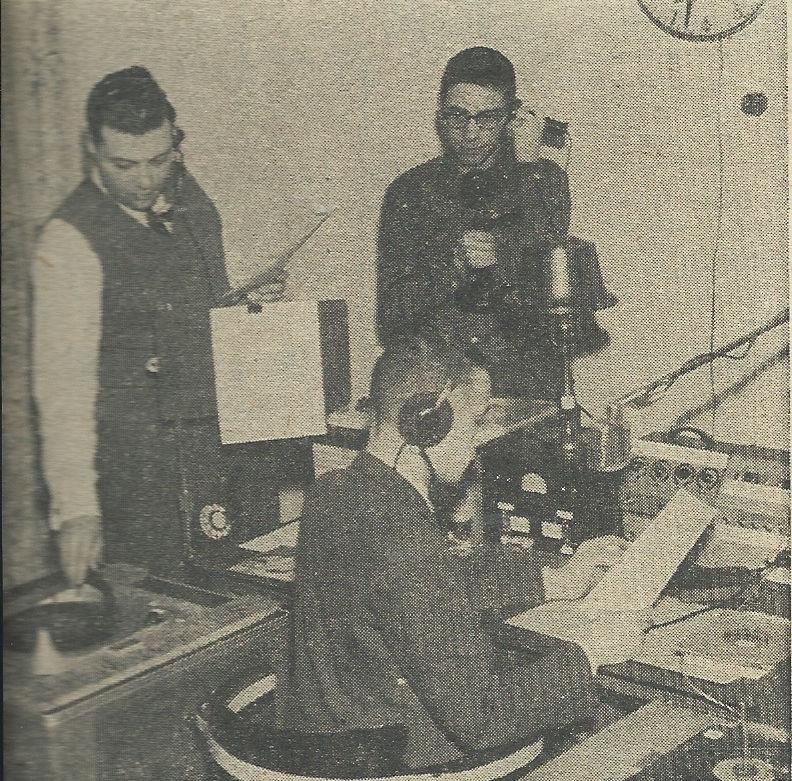Good Morning, Pitt: Williams’ character brought radio to Pitt
October 24, 2014
Saigon, 1965. A conflict brews, President Johnson increases the number of stationed men from 75,000 to 125,000 and Adrian Cronauer (Robin Williams) just landed a new job with the Armed Forces Radio Service (AFRS).
“Good Morning, Vietnam” combines dark comedy, war drama, love story, travel film and period piece with a characteristic Williams performance — impressions and ad-libbing. He loads about as many pop culture references — including “Mr. Ed,” “Puff the Magic Dragon,” Elvis, Bob Dylan, “The Lone Ranger,” Elizabeth Taylor, Pat Boone, the Marx Brothers and “The Wizard of Oz” — one can fit into a two-hour window.
Rigid Sgt. Maj. Phillip Dickerson (J.T. Walsh) and comically inept Lt. Steven Hauk (Bruno Kirby) capture the tension of the Vietnam War era in their disdain for Cronauer’s antics. The cramped radio station office symbolizes the prevalent censorship of the conflict, the press and finally of Cronauer. He’s fired from his job numerous times in the film, and, while the real-life figure served a tour as a DJ between 1965-66, he did so with less irreverence.
Williams’ character is loosely based on the experiences of Pittsburgher Adrian Cronauer, who studied at Pitt before transferring to American University as a broadcasting major. Williams and Cronauer didn’t meet until after the movie was complete, because director Barry Levinson didn’t want Williams to conjure an imitation of Cronauer but, instead, to make the character his own.
While at Pitt in 1957, Cronauer was one of 12 students who formed the Student Broadcasting Association, which would become WPTS, the University’s student-run radio station. It was called WPGH at the time and didn’t make it on the air until 1959. Cronauer was an Air Force sergeant who ran a popular program with the troops called “Dawn Buster” in Saigon from 1965 to ‘66.
The film version of Cronauer laces Williams’ politicking, meandering, manic improv with a veritable mass of diegetic rock and roll, like the Beach Boys’ “I Get Around” (played over a montage of shirtless U.S. Army soldiers sunning on ships, jeeps, helicopters and planes), The Searchers’ “Sugar and Spice” and James Brown’s “I Got You (I Feel Good).”
Yet a movie about Vietnam can’t forgo a degree of grisliness. “Good Morning, Vietnam” avoids this for a while — until about three-quarters of the way in. In the most visceral scene, Cronauer and his pal Edward Garlick (Forest Whitaker) arrive at a convoy preparing to embark on a firefight. Cronauer speaks with the soldiers there for an inordinate amount of time, rebuffing their hometowns, names and personalities with warm vivaciousness.
The dialogue is memorable, not for its Williams-dominated tactile humor, but for its subtle implications. The prolonged scene’s meaning is evident: these young men in the trucks are leaving. Many of them permanently. Cronauer’s shtick might be their last source of entertainment.
After, there’s another montage — this one set to Louis Armstrong’s “What a Wonderful World” — coupled with images of napalm flares, V-C soldiers, firing squads and men on stretchers. It could be the film’s sole satirical moment, but it’s too poignant to forget. A lot of the action occurs within the comfortable confines of the radio station, but the outside conflict exists and escalates. It can’t be repressed.
The dark material reveals an R-rated Robin Williams, who demonstrates his capabilities without holding back and censoring his routine. Though clearly a different concept than Williams’ character in 1993’s family-friendly “Mrs. Doubtfire,” Cronauer possesses many of the same qualities of Mrs. Doubtfire, such as love and determination. Williams has a persona so difficult to categorize that he’s made one of his own. He is the unpinnable, all-ad-libbing, singing and laughing figure whose incomprehensibly rapid, fluid soliloquies melt through his tongue to entice our hearts.
“Goodbye, Vietnam,” he says as the film fades out. “That’s right, I’m history. I’m outta here. I got the lucky ticket home, baby.”
You’re right, Mr. Williams. You are history — and we miss you dearly.



